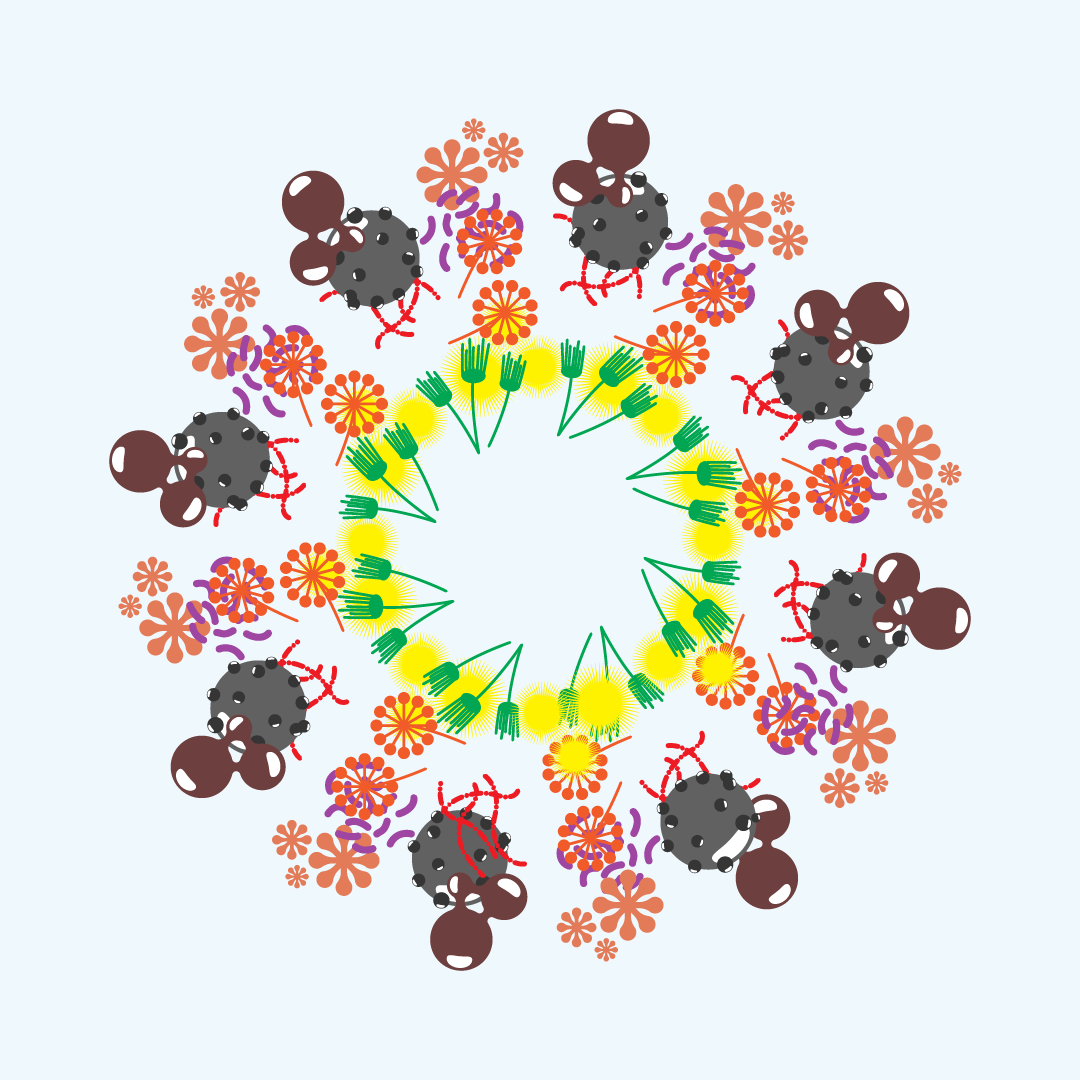Fall Means Allergies Are Coming Back
Published Date: 09/03/2021

As we head into the cooler, refreshing air of September, allergies are returning for children in many parts of the country. Seasonal allergies can affect children in the spring, summer, or fall due to pollen and mold spore irritants that recur each year. According to doctors, children who suffer in the spring often also have symptoms in autumn. When pollen is released from trees, grass, and various types of weeds, it permeates the air and causes irritation in the respiratory system. It can also come into contact with the eyes and skin. From August through October, ragweed pollen is the most prevalent type of irritant in the environment. Although it grows primarily in the midwestern and eastern part of the country, its spores are carried hundreds of miles by the wind. Therefore, it can affect people in the west as well. In addition, moisture that collects in piles of leaves on the ground causes the growth of mold, which is another common irritant during this time of the year. In people who suffer from allergies, the immune system releases histamine and other chemicals to try and defend against the allergens. These substances released by the immune system cause various respiratory symptoms. The CDC estimates that six million children suffer from seasonal allergies each year. If your child suffers from seasonal allergies, keeping the symptoms under control can be a challenge since there is no cure. However, parents can take some simple steps to help children manage the symptoms.
The first thing that parents can do to help their children through allergy season is to become aware of the symptoms. Some of the most common symptoms include runny nose, sneezing, and nasal congestion. Allergy sufferers also frequently experience watery or itchy eyes and fatigue. Additionally, allergens can cause coughing, wheezing, and throat irritation. If you notice any of these symptoms in your children, it is a cue to take action. If t symptoms persist for more than one or two weeks, it is an indicator that your child may be suffering from allergies. Testing may be necessary to identify the cause of your child’s symptoms and determine the most effective treatment plan. If a child is experiencing symptoms continuously, they may need to take medications every day during allergy season. Many people rely on over-the-counter antihistamines for treating intermittent symptoms. Antihistamines protect against the immune response to irritants by blocking the effect of histamine released in the body. There are also other medications that prevent the release of histamines and block the effect of chemicals released from immune cells. Other treatments such as allergy shots and sublingual immunotherapy are also available for treating certain types of allergies.
Teaching your children about allergies helps them be aware in case they experience symptoms while at school. Another way that parents can help their children during allergy season is to check the pollen count in the weather report. On days when the pollen count is high, limiting time spent outside helps to prevent the triggering of symptoms. Keep the windows closed if the pollen count outdoors is high to prevent irritants from entering the house. Remember that on windy days, an increased amount of pollen circulates through the air. To reduce the growth of mold in the yard, be sure to mow the lawn frequently and rake the leaves. Vacuuming carpet at least once or twice per week helps to keep the house free of allergens. In addition, sweeping or vacuuming the entryways frequently and using doormats is advisable for keeping pollen out of the house. If there are pets in the home, it is a good idea to wipe their paws and coats after they go outside so they do not bring mold or pollen indoors. Plants release the most pollen from the mornings to mid-day, so outdoor activities should be scheduled for the afternoon whenever possible. Remembering to take these precautions to reduce exposure to allergens will help your children stay healthier throughout the fall season.
